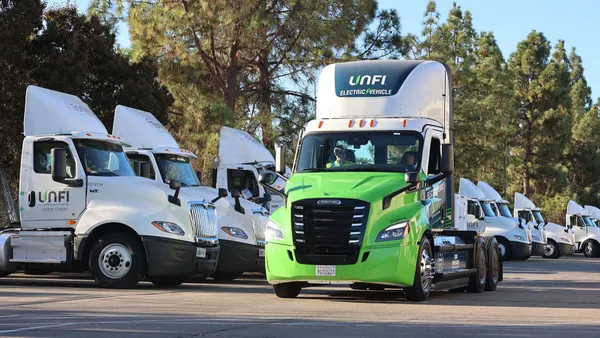Dive Brief:
- Hundreds of workers at Chicago O'Hare International Airport announced they would strike next Tuesday, in efforts to push airport authorities to raise their wages to $15 an hour, CNN Money reported Monday.
- The airport's janitors, baggage handlers, cabin cleaners and wheelchair attendants are currently paid $8.25 an hour, Illinois' minimum wage. These workers are not unionized, but are supported in their strike efforts by Service Employees International Union.
- The workers purposefully avoided striking during the Thanksgiving holiday in order to gain public support, a union spokeswoman told CNN. Roughly 3.7 million passengers are expected to travel through the airport over Thanksgiving, and a strike would have severely disrupted operations for many passengers.
Dive Insight:
The airport strike will not directly affect air traffic during the Thanksgiving holiday, but it will still cause a severe backlog in air traffic after the holidays.
Whereas a strike during the Thanksgiving holiday may have forced employers to come to the table due to severe momentary disruption, a strike after the holiday may be more prolonged and could still affect Cyber Monday logistics traveling through the airport.
Chicago O'Hare International Airport handled 143,462.7 tons of cargo volume last November, with express cargo shipments representing 5,732.2 tons. Shippers relying on the Chicago area hub for transport should plan for backlogs throughout the network, or make alternate travel arrangements.
The workers noted their choice to avoid disrupting holiday travel was an attempt to build good faith with the public. The workers' battle is against private employers AirScrub and Prospect Airport Services, and the City of Chicago, according to CNN. Not disrupting Thanksgiving travel could weigh well with airport authorities and the public, increasing pressure on the public employers to raise the workers' wages.
The workers may have also chosen to postpone the strike until after Thanksgiving due to holiday pay and lack of muscle to follow through with a prolonged strike given a lack of union benefits.
A strike may still be averted if the threat brings the employers to the table before next Tuesday.














